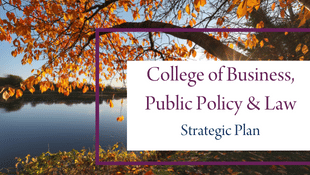-
Courses

Courses
Choosing a course is one of the most important decisions you'll ever make! View our courses and see what our students and lecturers have to say about the courses you are interested in at the links below.
-
University Life

University Life
Each year more than 4,000 choose University of Galway as their University of choice. Find out what life at University of Galway is all about here.
-
About University of Galway

About University of Galway
Since 1845, University of Galway has been sharing the highest quality teaching and research with Ireland and the world. Find out what makes our University so special – from our distinguished history to the latest news and campus developments.
-
Colleges & Schools

Colleges & Schools
University of Galway has earned international recognition as a research-led university with a commitment to top quality teaching across a range of key areas of expertise.
-
Research & Innovation

Research & Innovation
University of Galway’s vibrant research community take on some of the most pressing challenges of our times.
-
Business & Industry

Guiding Breakthrough Research at University of Galway
We explore and facilitate commercial opportunities for the research community at University of Galway, as well as facilitating industry partnership.
-
Alumni & Friends

Alumni & Friends
There are 128,000 University of Galway alumni worldwide. Stay connected to your alumni community! Join our social networks and update your details online.
-
Community Engagement

Community Engagement
At University of Galway, we believe that the best learning takes place when you apply what you learn in a real world context. That's why many of our courses include work placements or community projects.
News archive Irish Centre for Human Rights Play Key Role In Landmark Resolution Adopted On Human Rights
Irish Centre for Human Rights Play Key Role In Landmark Resolution Adopted On Human Rights
Last month the United Nations General Assembly adopted a landmark resolution on human rights that was built in large part based on the research of Professor Michael O'Flaherty from the Irish Centre for Human Rights at NUI Galway. The ‘Dublin Process’ document sets out to strengthen and enhance the efficiency structures of the UN Human Rights treaty body system.
This resolution marks a defining moment in a treaty body reform process that began in Dublin in 2009 and paves the way for the delivery of enhanced resources to this long-neglected part of the UN human rights system and re-affirms the independence of treaty bodies and their membership.
One such example of upholding human rights in a meaningful way among States and civil societies was the international attention and subsequent Irish Human Rights Commission report published in June 2013, for human rights violations in the Magdalene Laundries and redress for the Magdalene women based on human rights abuses.
The UN human rights oversight mechanism, known as the treaty body system, has been beset with longstanding and deeply ingrained inefficiencies and other impediments to effectiveness, all of which have undermined its capacity to do its job of getting governments to uphold the human rights of their peoples.
Repeated efforts to reform the system had only very limited success and the problems continued to multiply. In response, on the invitation of the UN High Commissioner for Human Rights, Professor O'Flaherty, in 2009, convened an expert group in Dublin to set out a road map for a new reform process that would deliver meaningful results.
There followed a set of consultations around the world that were drawn together in 100 recommendations adopted at a second meeting in 2011, convened in Dublin by Professor Michael O'Flaherty. Those recommendations were then put before the UN General assembly by means of a report submitted to it by the High Commissioner.
The subsequent two-year debate, in which Professor O'Flaherty participated in an expert capacity, was brought to a conclusion with the historic resolution on the 11th February 2014.
Professor O'Flaherty, Director of NUI Galway's Irish Centre for Human Rights, said, "This is a defining moment in a treaty body reform process that got underway in Dublin in 2009. Remarkably, it does so with some success, paving the way for the delivery of enhanced resources to the long neglected sector and re-affirming the independence of the treaty bodies and their membership. The pathway to the adoption of the resolution was also notable, comprising a multi-stakeholder engagement that was exceptional in terms of UN human rights diplomatic practice. The Dublin Process will serve as a template of how other intractable problems of the UN Human rights system can be tackled in an effective way. The Irish government deserves great credit for its steadfast support for the process."
The ‘Dublin Process’ led by Professor O’Flaherty was at the heart of the landmark resolution adopted last month by the UN General Assembly. The process began in Dublin in 2009 and ended two years later in Dublin. The project was supported by the Irish Government, who played an important role alongside the UN General Assembly in bringing paving the way for this resolution of the treaty body system, under the leadership of Professor O’Flaherty. It highlights the impact that the Irish Centre for Human Rights is making and that their University-based work is resulting in a very meaningful strengthening of UN Human Rights.
For more information on the process Professor O'Flaherty discusses it in a recent blog post at: http://www.nuigalway.ie/irish-centre-human-rights/news/-professor-oflaherty-on-strengthening-of-the-un-human-rights-treaty-body-system.html
















